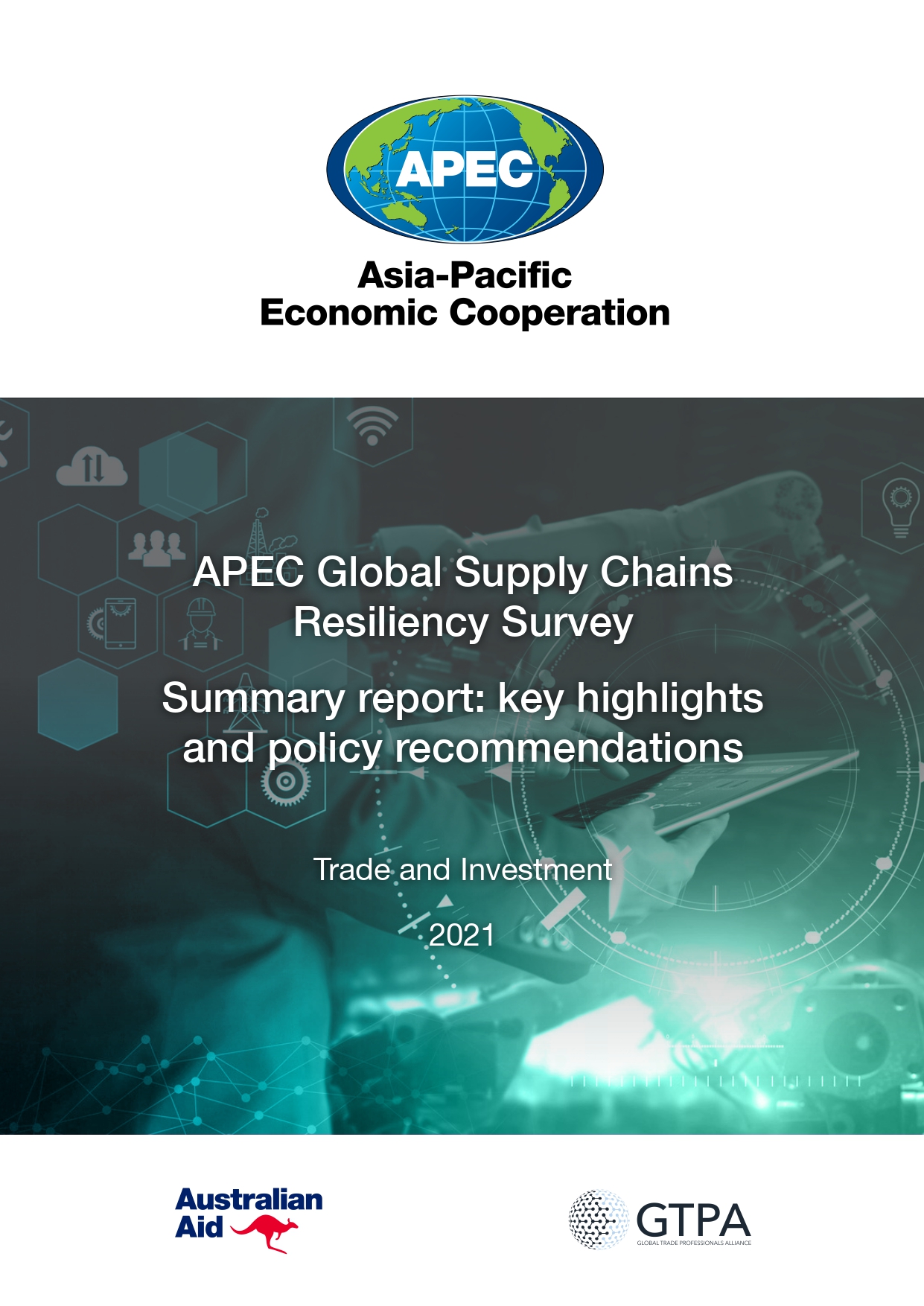APEC Global Supply Chains Industry and Government Survey report

Crises of this magnitude offer an opportunity for reflection as reconstruction and recovery begins: The APEC Global Supply Chains Industry and Government Survey report
The international trading system as it stood pre-Covid-19 pandemic was inherently imbalanced, unstable and did not provide opportunities for all strata of society to benefit from the gains from trade.
Beyond its human tragedy, the economic impacts of the pandemic, with national lockdowns shutting key elements of economic activity and global supply chains, have led to the slowdown in economic activity.
Crises of this magnitude offer an opportunity for reflection as reconstruction and recovery begins.
The Australian Government recently funded a survey into global supply chains to better understand the needs of large businesses in APEC economies and the rest of the world after the COVID-19 pandemic.
Highlights from the report show that for industry and government bodies supporting the business community through the COVID-19 pandemic, the top three areas of support of most importance to businesses included expert advice, policy advocacy and technical assistance. The advice most frequently sought was on supply chains disruptions, strategic planning and risk management.
Based on the survey results, moving forward, government and industry associations should prioritise the following as the most important general policy areas for business: global supply chain relocation and transformation, macroeconomic concerns, and the future of work.
The top three policy areas of consideration to support businesses as a direct result of the COVID-19 pandemic include: training and learning, ensuring higher participation in global supply chains, preventing supply chain disruption, and increasing business competitiveness and innovation.

The top three digital readiness policy considerations needed to support business moving forward emerged from the survey as: cybersecurity, virtual work capacity, digital application to customs procedures, and the use of digital services for optimising distribution networks.
As businesses adapt to offering products and services through digital and eCommerce channels, the survey results indicate that supporting business to engage in eCommerce, strengthening their digital transformation for future resilience, cybersecurity, data management, and digital payments, would be priority areas. The report can be downloaded at: www.gtpalliance.com.